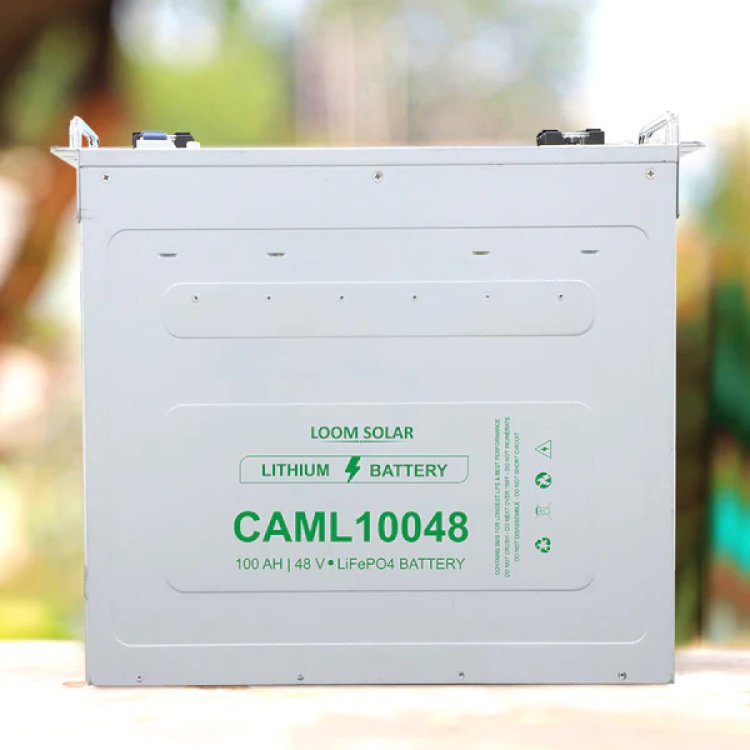12v lithium-ion battery vs lead acid battery which one to choose?
Comparing a 12V lithium-ion battery to a 12V lead-acid battery involves...
Share this Post to earn Money ( Upto ₹100 per 1000 Views )

Comparing a 12V lithium-ion battery to a 12V lead-acid battery involves considering various factors related to performance, lifespan, maintenance, and cost. Here's a comparison between the two types of batteries:
1. Energy Density and Weight:
• Lithium-ion Battery: Lithium-ion batteries have a higher energy density compared to lead-acid batteries. They can store more energy in a smaller and lighter package, making them suitable for applications where space and weight constraints are important.
• Lead-Acid Battery: Lead-acid batteries have lower energy density and are generally bulkier and heavier for a given capacity. This can impact their portability and installation flexibility.
2. Cycle Life:
• Lithium-ion Battery: Lithium-ion batteries typically have a longer cycle life compared to lead-acid batteries. They can endure a larger number of charge-discharge cycles before their capacity significantly degrades. This can make them more cost-effective over the long term.
• Lead-Acid Battery: Lead-acid batteries have a limited cycle life, especially when subjected to deep discharges. Regular deep discharges can significantly reduce their lifespan.
3. Depth of Discharge:
• Lithium-ion Battery: Lithium-ion batteries can often be safely discharged to a higher percentage of their capacity compared to lead-acid batteries. This allows for more usable energy storage.
• Lead-Acid Battery: Lead-acid batteries should be discharged to a shallower depth to prolong their lifespan. Deep discharges can lead to sulfation and reduced performance.
4. Charging Efficiency:
• Lithium-ion Battery: Lithium-ion batteries are more efficient at both charging and discharging. They can be charged at higher rates and typically have lower self-discharge rates compared to lead-acid batteries.
• Lead-Acid Battery: Lead-acid batteries are less efficient in terms of charge and discharge rates. They require longer charging times and can lose charge more quickly when not in use.
5. Maintenance:
• Lithium-ion Battery: Lithium-ion batteries require minimal maintenance. They do not need regular topping up of electrolyte or equalization charging like some types of lead-acid batteries.
• Lead-Acid Battery: Lead-acid batteries may require periodic maintenance, including checking and topping up electrolyte levels, and occasional equalization charging.
6. Safety:
• Lithium-ion Battery: Lithium-ion batteries are generally safer than some older lead-acid battery chemistries. However, they can still pose safety risks if damaged, overcharged, or exposed to high temperatures.
• Lead-Acid Battery: Lead-acid batteries can produce hydrogen gas during charging, which is flammable and can pose safety hazards in poorly ventilated environments.
7. Initial Cost:
• Lithium-ion Battery: Lithium-ion batteries tend to have a higher upfront cost compared to lead-acid batteries.
• Lead-Acid Battery: Lead-acid batteries are generally more affordable upfront, but their shorter lifespan and maintenance requirements can lead to higher long-term costs.
When choosing between a 12V lithium-ion battery and a 12V lead-acid battery, consider your specific needs, such as energy storage capacity, cycle life requirements, maintenance preferences, budget, and safety considerations. Both types of batteries have their own advantages and disadvantages, and the choice will depend on the specific application and priorities. If you are looking for high-quality products and services for your solar system, you can check out the Loom Solar website. They offer a wide range of on-grid solar inverter, solar panels, lithium batteries, and accessories with free installation and delivery across India. You can also get expert advice and support from their team to design and maintain your system.












